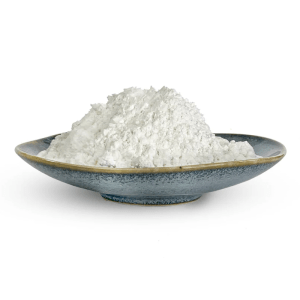
# Starch Sugar: A Sweet and Versatile Ingredient
## What is Starch Sugar?
Starch sugar, also known as glucose syrup or corn syrup, is a sweetener derived from starch. It’s produced by breaking down starch molecules from various sources like corn, wheat, potatoes, or rice through enzymatic processes. The result is a versatile sweetening agent that plays a crucial role in numerous food applications.
## Types of Starch Sugar
There are several types of starch sugar available, each with unique properties:
– Glucose syrup: The most basic form with varying degrees of sweetness
– High fructose corn syrup (HFCS): Contains higher levels of fructose
– Maltodextrin: Less sweet with excellent binding properties
– Dextrose: Pure glucose in crystalline form
## Production Process
The production of starch sugar involves several key steps:
1. Starch extraction from raw materials
2. Liquefaction using enzymes
3. Saccharification to break down starch into sugars
4. Filtration and purification
5. Concentration to desired syrup consistency
## Applications in Food Industry
Starch sugar finds extensive use across various food sectors:
### Confectionery
In candy production, starch sugar prevents crystallization, provides texture, and extends shelf life. It’s particularly valuable in chewy candies, gummies, and caramels.
### Baking
Bakers appreciate starch sugar for its moisture-retention properties, which keep baked goods fresh longer. It also contributes to browning and enhances flavor.
### Beverages
Many soft drinks use starch sugar as a sweetener because it dissolves easily and provides consistent sweetness.
### Dairy Products
Ice cream manufacturers use starch sugar to improve texture and prevent ice crystal formation, while yogurt producers utilize it for sweetness and consistency.
## Nutritional Aspects
Keyword: Starch Sugar
While starch sugar provides energy (4 calories per gram), it’s important to note:
– It has a high glycemic index
– Overconsumption may contribute to health issues
– It lacks significant vitamins or minerals
– Many products now offer reduced-sugar alternatives
## Advantages Over Other Sweeteners
Starch sugar offers several benefits that make it popular in food manufacturing:
– Cost-effective production
– Excellent solubility
– High stability under various processing conditions
– Versatility in texture modification
– Extended shelf life for products
## Future Trends
The starch sugar industry continues to evolve with:
– Development of cleaner-label alternatives
– Increased focus on sustainable production methods
– Advancements in enzymatic technologies
– Growing demand for specialized sugar profiles
As consumer preferences shift toward healthier options, manufacturers are innovating to create starch sugar products that meet both functional and nutritional demands.